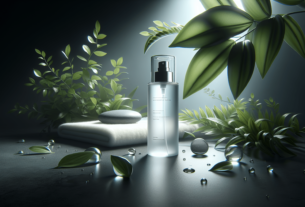Have you ever stood in the skincare aisle, feeling overwhelmed by the sheer number of products? They promise glowing skin, fewer wrinkles, and the end of all your skincare woes. But have you paused to consider the ingredients these bottles contain? In the great skincare debate, the question often isn’t about which product to choose but rather what goes into them: Natural or synthetic ingredients? Let’s wander through this intricate topic together.
Understanding Skincare Ingredients
Before diving into the distinct worlds of natural and synthetic, it’s essential to understand the role ingredients play in skincare. Every ingredient has a purpose, whether it’s to moisturize, hydrate, soothe, or protect. As the guardians of our skin, products must be crafted with consideration and respect for our largest organ. Your skin deserves nothing less.
The Basics of Natural Ingredients
Natural ingredients are derived from natural sources like plants, minerals, and animals. These ingredients have been used for centuries, long before the advent of synthetic alternatives. Their appeal lies in their simplicity and the perception that what comes directly from nature is inherently better. Yet, as with any story, there are layers to peel back.
The Genesis of Synthetic Ingredients
Contrary to what some may believe, synthetic doesn’t always equate to harmful or unnatural. These ingredients are created through chemical processes, often enabling the development of innovative formulations that natural ingredients might not achieve. The world of synthetic ingredients is one of precision and the promise of stability and consistency.
The Pros and Cons of Natural Skincare Ingredients
Natural ingredients offer a world filled with botanical treasures. They evoke the essence of tradition and the raw power of Mother Earth. However, this doesn’t mean they’re free from pitfalls or that they suit every skin type.
The Magnitude of Benefits
- Reduced Chemical Load: One of the compelling advantages of natural ingredients is their minimal processing and absence of artificial additives. Your skin isn’t subjected to potentially harsh chemicals.
- Rich in Nutrients: Think of ingredients like avocado oil and honey, which brim with vitamins and antioxidants beneficial for your skin.
- Environmentally Conscious: Natural ingredients often come with fewer environmental impacts, applauding sustainable practices and ethical sourcing.
The Potential Drawbacks
- Inconsistent Quality: Just like batches of fruit vary, so can natural ingredients. This inconsistency might lead to varied product effectiveness.
- Shorter Shelf Life: Without synthetic preservatives, natural products may spoil faster, making them less economical for long-term use.
- Potential Allergens: Nature isn’t free from allergens. Common offenders include essential oils and plant extracts, which can irritate sensitive skin.

The Trustworthiness of Synthetic Skincare Ingredients
In the realm of science, synthetic ingredients often stand on a pedestal of consistency and innovation. But these laboratory-born compounds are not free from consumer concerns.
Forging Strengths in the Lab
- Controlled Consistency: Labs can replicate the same formula repeatedly, ensuring you get the same product every time.
- Extended Shelf Life: Synthetics often include preservatives, keeping your creams fresh for longer durations.
- Innovative Formulations: Some ingredients can only be crafted in a lab, offering solutions beyond the natural spectrum, such as certain peptides for anti-aging.
Peeling Back the Weaknesses
- Perception of Harshness: Many believe synthetic means harmful. This perception occasionally overshadows the benefits they offer.
- Environmental Concerns: Some synthetic ingredients may not biodegrade well, causing potential environmental pollution.
- Potential Sensitivity Issues: Like natural ingredients, synthetics can also trigger allergies or skin irritation, though this varies from person to person.
Making the Decision: Natural or Synthetic?
As you consider which path to follow, it’s crucial to evaluate the needs of your skin and personal preferences. Often, the choice isn’t about picking sides but finding harmony between both worlds.
Tailoring to Your Skin Type
The journey to skincare satisfaction begins with knowing your skin type. Oily, dry, combination, or sensitive skin will all react differently to ingredients.
| Skin Type | Natural Ingredients | Synthetic Ingredients |
|---|---|---|
| Oily | Tea tree oil, witch hazel | Salicylic acid, niacinamide |
| Dry | Shea butter, aloe vera | Hyaluronic acid, glycerin |
| Combination | Jojoba oil, chamomile | Dimethicone, ceramides |
| Sensitive | Calendula, oatmeal | Peptides, PHAs |
Considering Skin Concerns
Common skin issues like acne, aging, and hyperpigmentation might also steer your choice. Delve deeper into which ingredients target these effectively, whether from nature or the lab.
- Acne: Tea tree oil or salicylic acid may serve as your skin’s knights in shining armor.
- Anti-Aging: Rosehip oil brings antioxidative gifts from nature, while retinoids synthesize youthful essences.
- Brightening: Turmeric offers a golden touch, whereas vitamin C in synthetic formulations brightens tirelessly.
Lifestyle and Ethical Considerations
Decisions often stretch beyond personal benefits. Whether it’s supporting ethical production methods or reducing carbon footprints, your choice impacts the larger world.
- Vegan or Cruelty-Free Preferences: If these values resonate with you, research into your favored brands’ practices could guide your choice.
- Budget Constraints: Sometimes, budget becomes the deciding factor. Natural products can carry premium prices due to environmentally-conscious practices, while synthetics might offer competitive pricing without compromising quality.

Crafting a Skincare Routine
Blending both natural and synthetic ingredients might offer your skin a balanced diet. This synergy could leverage the best of both worlds. Crafting such a routine involves strategic selection and attentive observation.
The Art of Layering
The order of applications can make or break your skincare routine. Typically, you’ll want to proceed from the lightest to heaviest consistency.
Morning Routine Inspiration
- Cleanser: A gentle, natural formula with chamomile extract.
- Toner: Witch hazel to tighten pores.
- Serum: Vitamin C to illuminate and protect.
- Moisturizer: Lightweight hyaluronic acid cream.
- SPF: A mineral-based sunscreen to shield from UV rays.
Evening Routine Inspiration
- Makeup Remover: An oil-based cleanser like jojoba oil.
- Cleanser: A synthetic, pH-balanced cleanser.
- Treatment: Retinol to encourage cell turnover.
- Eye Cream: Peptides to rejuvenate delicate areas.
- Nourishing Moisturizer: Rich in shea butter for overnight hydration.
Listening to Your Skin
Your skin is your best guide. Listen attentively, and if it speaks of irritation or dryness, don’t hesitate to rewind and remodel your routine. Patience, like any good story, unveils the true nature of products over time.
The Future of Skincare Ingredients
The beauty industry, like nature itself, constantly evolves. As we traverse the realms of science and sustainability, both natural and synthetic ingredients are poised for innovation.
The Rise of Clean Beauty
Consumers increasingly champion transparency, preferring products with clear ingredient lists free from harmful chemicals. This movement spans across both natural and synthetic companies aiming for ethical practices.
Biotechnology: The Best of Both Worlds
The fascinating world where biology meets technology offers bioengineered ingredients that mimic nature’s bounty. Imagine lab-grown aloe vera offering consistency without depleting natural resources.
Adaptive Skincare
With rapidly advancing technology, skincare doesn’t just address concerns but anticipates them. Future formulations may adapt based on environmental conditions or personal health, truly personalizing skincare on another level.
Conclusion
Your skincare journey is a deeply personal tale, with choices deeply rooted in individual values, needs, and beliefs. Whether you lean toward the gentle touch of nature or the calculated embrace of synthetics, both possess unique advantages and challenges. In this narrative, you are the author, crafting chapters that reflect your essence and aspirations. So, may your choices be as radiant as the skin you wish to achieve, blessing each day with confidence and joy.
Through curious exploration and informed decisions, your relationship with skincare products can transition from a daunting choice to an empowering part of self-care. Your skin—and your well-being—deserve nothing less.

